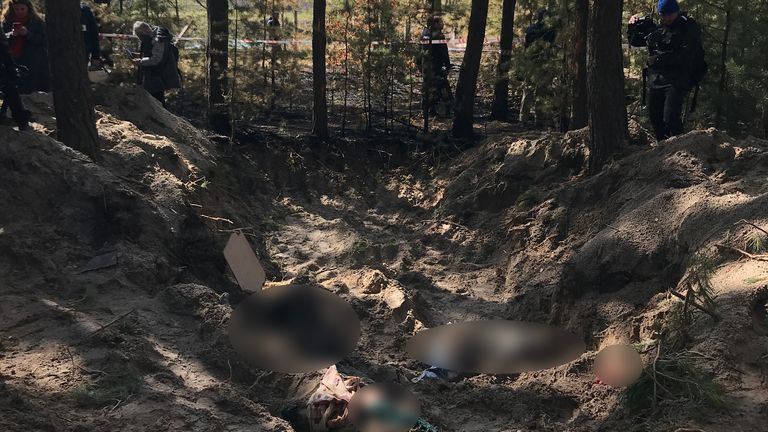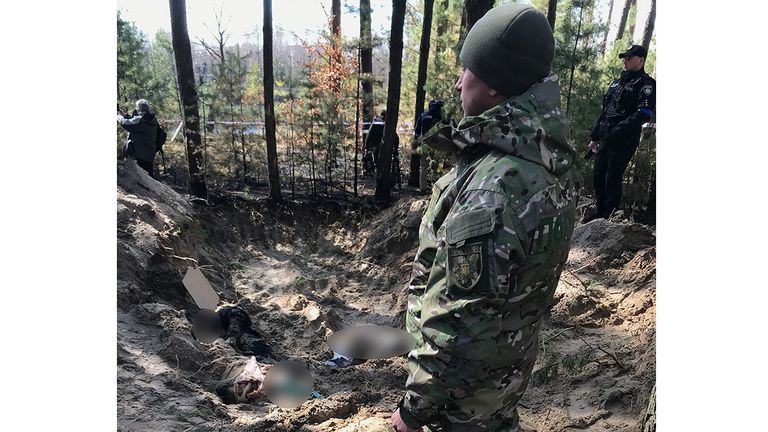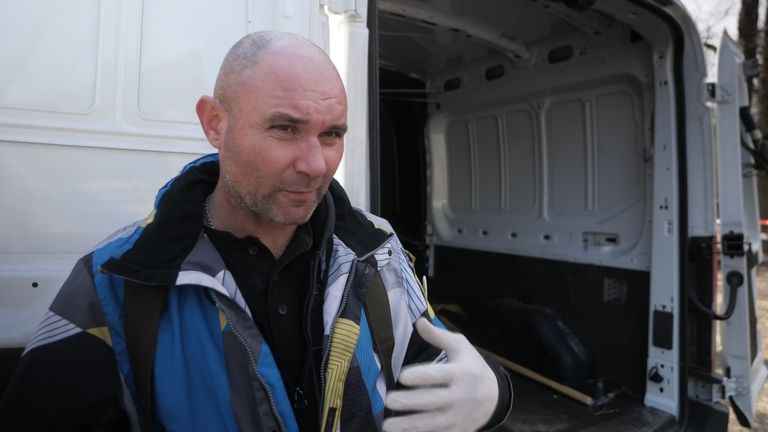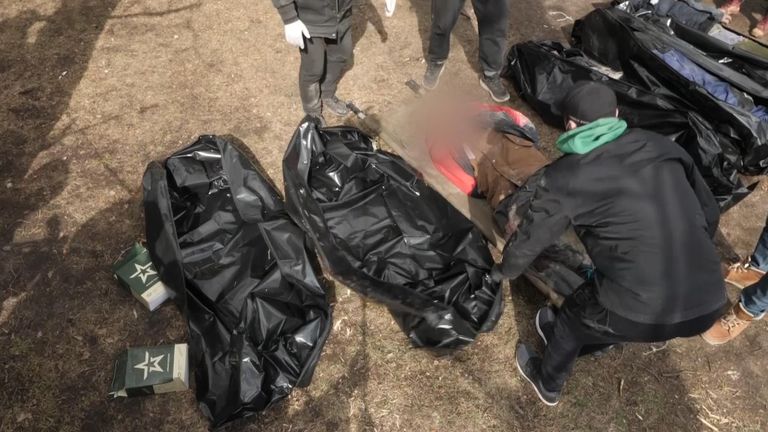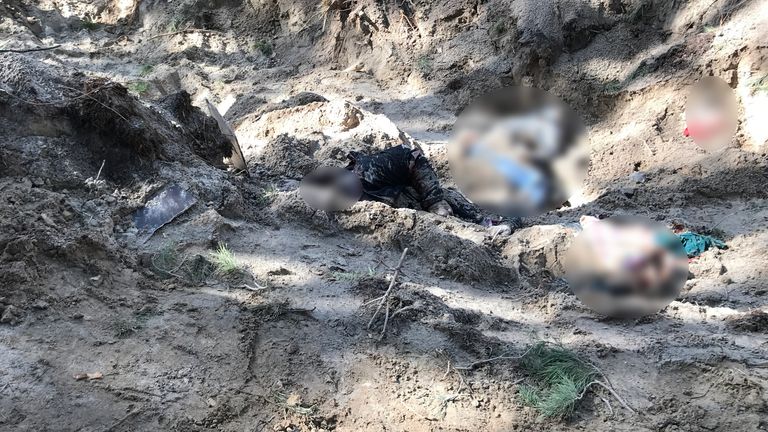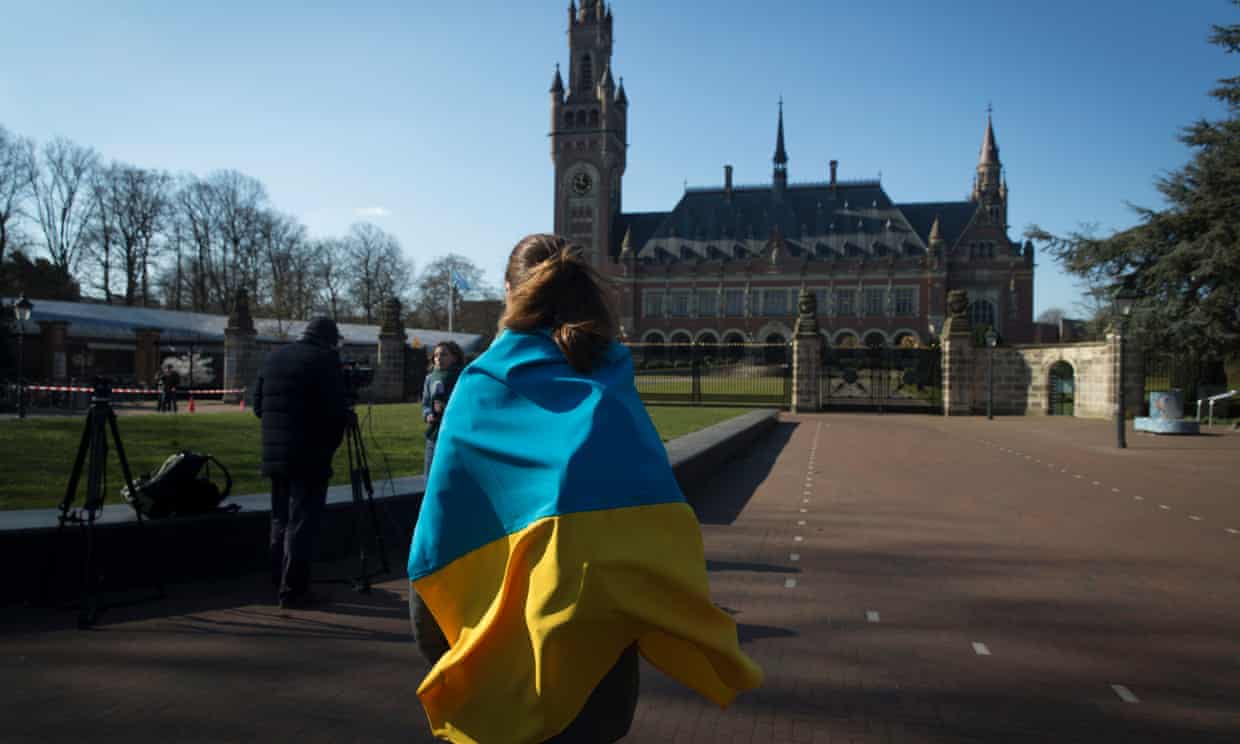Wearing plastic gloves and a face mask, Serhij Matuyk has seen horror beyond description over the past month.
His job is to retrieve and bury bodies in the Ukrainian town of Bucha where evidence has emerged of possible war crimes by Russian forces.
“They are b******s,” he said, standing by a large white van, waiting to load the corpses of five more men into the back of it.
The bloodied bodies – four of them with their hands bound behind their back, all of them violently killed – had been found in the basement of what was a children’s holiday camp until Russian forces turned it into a temporary base.
Ukraine war latest – ‘Unspeakable horrors’ in liberated towns as satellite images show mass graves
Russian soldiers “and their president are tyrants”, Mr Matuyk said.
“Whoever agreed to and carried out this war – they are inhumane.”
The bodies of around 300 civilians have been found in Bucha since Russian troops took control of the town, about 16 miles northwest of Kyiv, in the early days of the invasion, Mr Matuyk said. He predicted more would be discovered.
Most of the victims were men, but he thought about 30% had been women and children.
“During the worst of the shelling there were a lot of bodies and we buried them in mass graves,” Mr Matuyk said.
It had been frightening having to work in a warzone but the frank-talking man, who is still able to smile, said: “We got used to collecting bodies under the shelling”.
Russian troops finally pulled out of Bucha around four days ago as part of a wider withdrawal from across the Kyiv region.
But as Ukrainian forces pushed back into the town, they found bodies left in the streets and in basements.
Read more:
Mass graves, torture and broken bodies – the horrors of Bucha have been laid bare
Asked whether any of the corpses had revealed evidence of torture, Mr Matuyk said: “Yes, sure. For example, on Sunday, 20 out of 30 people had their hands tied.
“They died kneeling down, shot in the back of the head. We have also been collecting bodies from the streets of people who were killed riding their bicycles. Anyone who was outside riding or walking was killed systematically. It’s terrible.
“I’m used to this now, but to start with I found it so shocking. I just want to thank my guys for doing it. It’s a difficult job.”
In the basement at the holiday camp, three of the corpses had been shot in the head, Ukrainian officials said.
A fourth man had been killed by a blow to the head from a rifle butt, while the fifth victim had been shot multiple times in the chest.
Russia has denied responsibility for the killing of any civilians in Bucha, accusing the Ukrainian government of creating a “provocation”.
However, in another part of the town, one resident described to Sky News how she personally witnessed a Russian soldier shoot one of her neighbours dead.
Iryna, 47, said the soldier had challenged the man for stepping outside his apartment block.
“They asked for his papers. He said: ‘I don’t have my documents with me. I live on the ground floor and I’ll get them now’,” she recalled.
Iryna said she and her husband watched from their flat in the same block as he turned around to go back inside and retrieve his papers.
But the man, who was not quite 50 years old, had barely stepped away when the soldier shot him in the back of the head, she said.
“He didn’t even see it coming, he didn’t even have time to say anything,” said Iryna. “My husband and I heard a pop. And he fell.”
They did not dare step outside to recover the body, so it lay on the ground for hours.
Eventually, Iryna said her husband and some other neighbours dug a grave in the mud outside the back of the apartment block.
The bodies of two other residents have also been buried there.
They too were indiscriminately killed by the Russian soldiers, according to Iryna.
“It’s just terrifying,” she said, her voice breaking and tears streaming from her eyes.
“It is impossible that this is happening in the 21st century. It’s unimaginable… that such a thing happened. You wouldn’t wish that on anyone. What they did… so many people were killed… just for nothing.”
